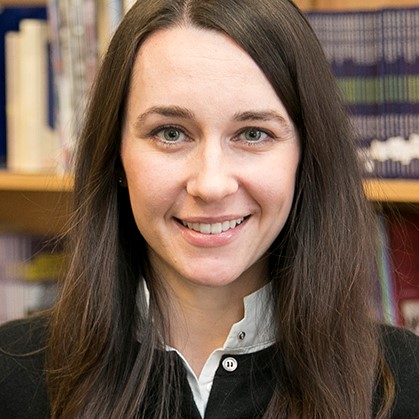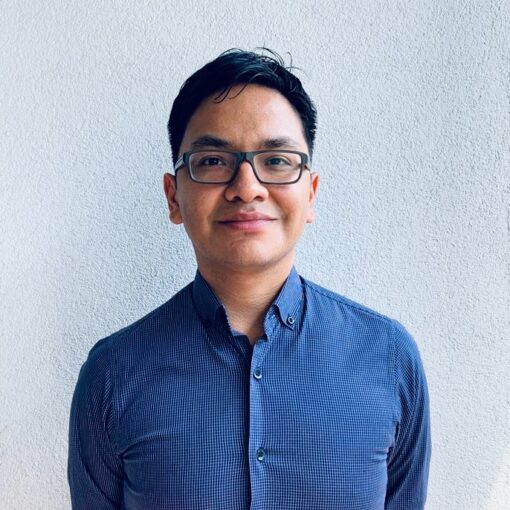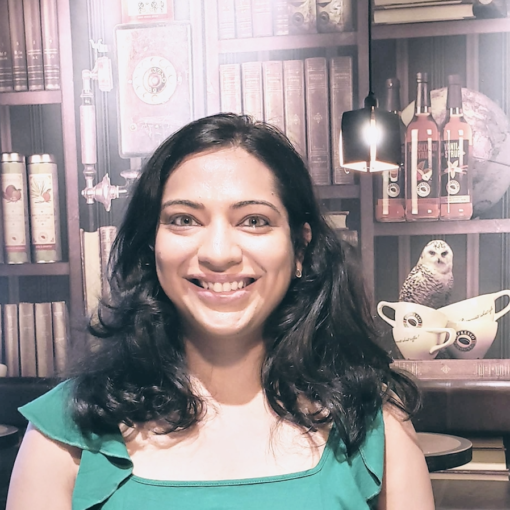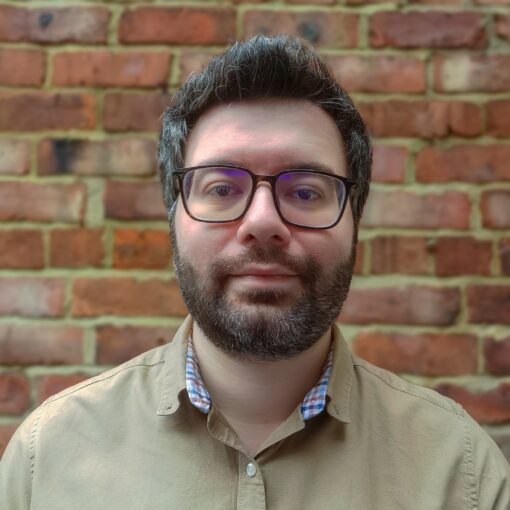DPhil in Linguistics, University of Oxford (2015)
| Senior Research Manager | |
|---|---|
| Cambridge Assessment English | |
Year entered into a non-academic position: 2017
Job highlight: I get to support learners and teachers across the world through my research work.
My research training set me up to develop a set of skills that can be applied in a variety of situations and jobs.
Left academia after: PhD
What’s your background?
I did modern languages as my undergraduate degree, and then completed an MA in Linguistics at UCL, followed by a DPhil in Linguistics at the University of Oxford. Between my Master’s degree and PhD I worked for the NHS. I also held a part-time role as a visiting lecturer while doing my PhD.
Why did you move away from academia?
I work in the research department of Cambridge Assessment, which is a non-teaching department of Cambridge University, so technically I still work in academia. Having said that, the work that I do is very much linked to the commercial sector so I guess it would be fair to say that I haven’t followed a traditional academic route.
There were several reasons why I started exploring less traditional academic routes. Unlike my fellow DPhil colleagues, I could not relocate to another country or city to take up an academic job. I wanted to stay within a commuting distance from London for family reasons. Another reason was the fact that there were not many opportunities available and quite often, these were limited to short contracts, which I wasn’t keen on. And finally, after working on the same topic for four years of doctoral studies I wanted to try something different and focus on a new area.
Is there anything you miss about academia?
I do miss some aspects of teaching, e.g. interacting with students and seeing the progress that they make. As I work in a research environment, the gap between academia and my day-to-day job is not very prominent. I still get to design research studies, collect and analyse data, disseminate research findings, present at conferences etc. The work that I do is highly collaborative and also involves elements of mentoring other colleagues, which has some parallels with teaching.
How did you get this job? Did you face any challenges when considering a move away from academia or applying for the role?
I came across the job advert for my current position on an academic website. I was already familiar with Cambridge Assessment and Cambridge English examinations because I took them myself when I was a student. A lot of the skills that were required for the role were transferable and one of the requirements was having a PhD degree, all of which looked very encouraging, and I decided to give it a go.
The biggest challenge for me was learning about assessment in a short amount of time. I didn’t have any psychometric training and my knowledge of assessment was limited to grading students’ essays, which is very different from the in-depth knowledge of assessment required if one works for an examination board.
What motivated you to/why did you choose the sector you transitioned into?
It felt reassuring to be part of the education sector and maintain links with the academic community.
It didn’t feel like I was making a drastic change and moving completely away from the academic sector. When I decided to accept my current position at Cambridge Assessment I remember thinking that I could always go back to teaching and pursue a more traditional academic path if it turned out that assessment wasn’t for me.
Did you think you had the skills required for your current position before you started? Were you right?
My PhD experience has definitely helped and I felt confident that I had the research skills that were required for the role. But it’s not just about the skills; it’s also about having the right attitude, willingness to learn on the job and to engage with the more commercial side of the business, flexibility etc.
How did your PhD prepare you for your current job? For example, what were the transferable skills that you developed during your PhD that are most relevant to your current job?
Previous research experience, including a PhD, was one of the requirements for my current role. Research study design, data analysis skills, critical thinking, communicating research outcomes to academic and non-academic audiences, and ability to synthesise information are some of the skills that I picked up during my doctoral studies. I use all of them in my day-to-day work.
Did you have any preconceptions about your sector that proved to be wrong?
I didn’t really know what to expect when I joined Cambridge Assessment. I didn’t know how academic or how commercial my role would be. It’s definitely fair to say that it has elements of both. The research that we do is carried out to support the users and uses of Cambridge English products and services across different sectors and regions, so there’s definitely a commercial element to the work that I do. However, I still have opportunities to engage in more academic research, publish in academic journals, present at conferences and collaborate with colleagues who work in the higher education sector.
Can you describe a typical week in your job?
My work is quite varied and every week is different. I’ll use this week as an example.
I am currently leading on the impact research workstream which involves running parallel impact studies across different countries/regions to measure the outcomes that Cambridge products and services have on learners, teachers, educational institutions and wider society. This week I am catching up with colleagues in the regional offices to discuss potential ideas for the studies that they want to undertake and decide how we can shape them further, what data collection instruments we will need, finalise the timelines, agree on methodology etc. In addition to planning new research projects, I am also running two focus groups with teachers based in the UAE to collect data for the study that I am currently working on.
This week I have also reviewed a report that was submitted to us by researchers from an external academic institution. I am also preparing for a talk on translanguaging (which is using more than one language in an integrated way) and using students’ first language in the classroom.
What is the workplace culture like? Please include comments on work-life balance, flexibility, remote working?
The workplace culture is very friendly and flexible working was already available before the pandemic. Some weeks are busier than others, but overall there’s a good work-life balance.
Do people with a PhD frequently get hired in the company/sector?
I work in the research department and all of my colleagues (apart from the admin team) have PhDs.
What are your favourite parts of your job?
The variety of projects that I get to work on, opportunities to implement research ideas, attend conferences and request training to acquire new skills. It’s also great to work with other people who have the same profile as I do (i.e. PhDs/academic background).
What are your reflections on your career path?
I think we all make career choices based on what works in our individual circumstances and the opportunities that are available. If I was able to relocate abroad and cast a wider net when I was looking for my first post-PhD job opportunity, I probably would have. However, retrospectively, I think joining Cambridge Assessment was a good choice. It allowed me to do something meaningful with my PhD and still be there for my family.
Do you have any advice for current graduate students and postdocs considering a career outside of academia?
Keep an open mind. There are a lot more opportunities out there than you think when all you’ve ever known is academia.
I would also encourage anyone considering moving away from academia to try and get some non-academic work experience if possible. It could be an internship, a volunteering role or a part-time job, but it shows potential employers that you are serious about making the transition and have a lot more to offer than just your academic credentials.
What do you know now that you wish you’d known when exploring a transition?
When I was a PhD student I was very much focused on following the traditional academic route. Any other options seemed either unattainable or a devaluation of my degree, but this couldn’t be further from the truth.
Based on my own experience and that of my DPhil friends, it’s much easier to transition into non-academic roles than I ever thought it would be.
Can you recommend any relevant resources, organisations or events that might help somebody new to the sector find out more about it?
I attended some events at Oxford that featured speakers who transitioned into non-academic roles and looked at websites such as www.findaphd.com and www.vitae.co.uk. There is quite a lot of information out there and I’m sure there are new resources that I am not aware of.





